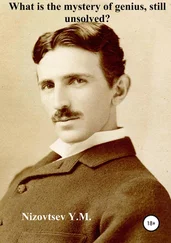Cesare Lombroso - The Man of Genius
Здесь есть возможность читать онлайн «Cesare Lombroso - The Man of Genius» — ознакомительный отрывок электронной книги совершенно бесплатно, а после прочтения отрывка купить полную версию. В некоторых случаях можно слушать аудио, скачать через торрент в формате fb2 и присутствует краткое содержание. Жанр: foreign_antique, foreign_prose, на английском языке. Описание произведения, (предисловие) а так же отзывы посетителей доступны на портале библиотеки ЛибКат.
- Название:The Man of Genius
- Автор:
- Жанр:
- Год:неизвестен
- ISBN:нет данных
- Рейтинг книги:5 / 5. Голосов: 1
-
Избранное:Добавить в избранное
- Отзывы:
-
Ваша оценка:
- 100
- 1
- 2
- 3
- 4
- 5
The Man of Genius: краткое содержание, описание и аннотация
Предлагаем к чтению аннотацию, описание, краткое содержание или предисловие (зависит от того, что написал сам автор книги «The Man of Genius»). Если вы не нашли необходимую информацию о книге — напишите в комментариях, мы постараемся отыскать её.
The Man of Genius — читать онлайн ознакомительный отрывок
Ниже представлен текст книги, разбитый по страницам. Система сохранения места последней прочитанной страницы, позволяет с удобством читать онлайн бесплатно книгу «The Man of Genius», без необходимости каждый раз заново искать на чём Вы остановились. Поставьте закладку, и сможете в любой момент перейти на страницу, на которой закончили чтение.
Интервал:
Закладка:
It is not known whether Comte ever forgave an injury. He certainly always preserved the rancour and the recollection of injuries, and pursued, even to the grave, the memory of his unfaithful wife. The amorous worship which he dedicated to Clotilde de Vaux was so little sincere that he determined beforehand the month, day, and hour when he should shed tears over her memory. 138 138 Revue Philosophique , 1887, p. 69.
Bacon employed all his eloquence for the condemnation of the greatest of his benefactors, Essex; by cowardly complaisance to the king, he introduced for the first time into the court of justice an odious abuse, and submitted Peacham to torture so as to be able to condemn him; he sold justice at a price, and, as Macaulay concludes, he was one of those of whom we may say, scientiis tanquam angeli, cupiditatibus tanquam serpentes .
“Bridget,” confesses A. de Musset, “calumniated, exposed (by her love) to the insults of the world, had to endure all the disdain and injury which an angry and cruel libertine can heap on the girl whom he pays… The days passed on and my fits of ill-humour and sarcasm took on a sombre and obstinate character.” 139 139 Confessions d’un Enfant du Siècle , pp. 250, 251.
Byron’s intimate friend, Hobhouse, wrote of him that he was possessed by a diseased egoism. Even when he loved his wife he refused to dine with her, so as not to give up his old habits. He afterwards treated her so badly that, in good faith, and perhaps with reason, she consulted specialists as to his mental condition.
Napoleon’s conduct towards his wife, his brothers, and towards those who trusted in him was that of a man without moral sense. Taine sums up the diagnosis in one word: he was a condottiere .
“A man’s genius is no sinecure,” said Carlyle’s wife, a most intelligent and cultivated woman, who, though capable of becoming (as she had hoped and been assured) her husband’s fellow-worker, was compelled to be his servant. The idea of travelling in a carriage with his wife seemed to him out of the question; he must have his brother with him; he neglected her for other women, and pretended that she was indifferent. Her chief duty was to preserve him from the most remote noises; the second was to make his bread, for he detested that of the bakers; he obliged her to travel for miles on horseback as his messenger, only saw her at meal-time, and for weeks together never addressed a word to her, although his prolonged silence caused her agony. It was only after her death, accelerated by his conduct, that, in a literary form, he showed his repentance, and narrated her history in affecting language, but, as his biographer adds, if she had been still alive he would have tormented her afresh.
Frederick II. said, like Lacenaire, that vengeance is the pleasure of the gods, and that he would die happy if he could inflict on his enemies more evils than he had suffered from them. He experienced real delight in morally tormenting his friends, sometimes beating them; if a courtier liked to pomade himself, he soaked his clothes in oil; he bargained with Voltaire over sugar and chocolate, and deprived him of his money.
Donizetti treated his family brutally; it was after a fit of savage anger, in which he had beaten his wife, that he composed, sobbing, the celebrated air, Tu che a Dio spiegasti l’ali ; 140 140 Cottrau, Lettre d’un Mélomane , Naples, 1885.
a remarkable instance of the double nature of personality in men of genius, and at the same time of their moral insensibility.
Houssaye narrates a similar scene, in which A. Dumas was so carried away during a quarrel, as to tear out his wife’s hair. She, in despair, wished to retire to a convent; yet after some minutes he gaily wrote a comic scene, and said to his friends: “If tears were pearls, I would make myself a necklace of them.”
Byron used to beat the Guiccioli, and also his Venetian mistress, the gondolier’s wife, who, however, gave him as good.
Fontenelle, seeing his companion at table struck by apoplexy, was not disconcerted; he simply took advantage of the incident to change the sauce for the asparagus to vinegar; out of deference to his friend’s taste he had previously ordered butter.
It is sufficient to be present at any academy, university, faculty, or gathering of men who, without genius, possess at least erudition, to perceive at once that their dominant thought is always disdain and hate of the man who possesses, almost or entirely, the quality of genius. The man of genius, in his turn, has nothing but contempt for others. He believes he has all the more right to laugh at others, from being himself sensitive to the slightest criticism; he is even offended at praise given to another as blame directed to himself. That is why at academical gatherings the greatest men only agree in praising the most ignorant person. We have seen that Chateaubriand was offended when his shoemaker was praised. Lisfranc called his colleague, Dupuytren, a brigand, and Roux and Velpeau forgers.
I have been able to observe men of genius when they had scarcely reached the age of puberty: they did not manifest the deep aversions of moral insanity, but I have noted among all a strange apathy for everything which does not concern them; as though plunged in the hypnotic condition, they did not perceive the troubles of others, or even the most pressing needs of those who were dearest to them; if they observed them, they grew tender, and even at once hastened to attend to them; but it was a fire of straw, soon extinguished, and it gave place to indifference and weariness.
Genius, said Schopenhauer, is solitary. Genius, wrote Goethe, is only related to its time by its defects.
This emotional anæsthesia may be found even in philanthropists, who possess the genius of sentiment, and have made goodness and pity for the poor the pivot of their actions. It is difficult to explain otherwise some pages in the Gospel. “You think, perhaps,” said Jesus, “that I have come to bring peace to the earth? No, I have come to throw down a sword there… In a household of five persons, three will be against two, and two against three. I have come to bring division between father and son, between mother and daughter, between daughter-in-law and mother-in-law. From this time a man’s enemies will be of his own household.” 141 141 Matthew x. 34-36; Luke xii. 51-53.
“I have come to bring fire on to the earth: if it burns already, so much the better!” 142 142 Luke xii. 49. See the Greek text.
“I declare to you,” he added, “whoever leaves house, wife, brothers, and parents, will receive a hundredfold in this world, and in the world to come everlasting life.” 143 143 Luke xviii. 29-30.
“If any one comes to me and does not hate his father, mother, wife, children, brothers, sisters, and even his own life, he cannot be my disciple.” 144 144 Luke xiv. 26.
“He who loves his father and his mother more than me is not worthy of me; he who loves his son or his daughter more than me, is not worthy of me.” 145 145 Matthew x. 37, xvi. 24; Luke v. 23.
Jesus said to a man, “Follow me.” “Lord;” this man replied, “let me first go and bury my father.” Jesus answered: “The dead may bury their dead: go, you, and preach the kingdom of God.” 146 146 Matthew viii. 21; Luke v. 23.
Dante, Goethe, Leopardi, Byron, and Heine were reproached with hating their country. Tolstoi disapproves of patriotism. Schopenhauer said, “In the face of death I confess that I despise the Germans for their unspeakable bestiality, and am ashamed to belong to them.”
Longevity. – This diseased apathy, this diminution of affection, which furnishes genius with a breastplate against so many assaults, and which rapidly destroys fibres at once so delicate and so strong, explains the remarkable longevity of men of genius, in spite of their hyperæsthesia in other directions. I have noted this character in 134 cases out of 143.
Читать дальшеИнтервал:
Закладка:
Похожие книги на «The Man of Genius»
Представляем Вашему вниманию похожие книги на «The Man of Genius» списком для выбора. Мы отобрали схожую по названию и смыслу литературу в надежде предоставить читателям больше вариантов отыскать новые, интересные, ещё непрочитанные произведения.
Обсуждение, отзывы о книге «The Man of Genius» и просто собственные мнения читателей. Оставьте ваши комментарии, напишите, что Вы думаете о произведении, его смысле или главных героях. Укажите что конкретно понравилось, а что нет, и почему Вы так считаете.












